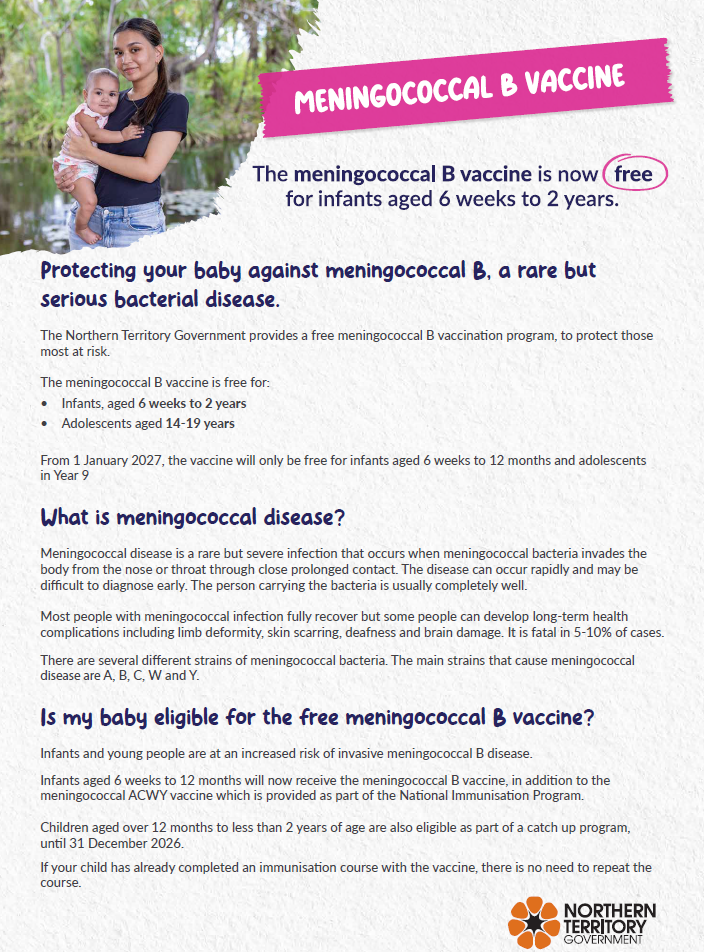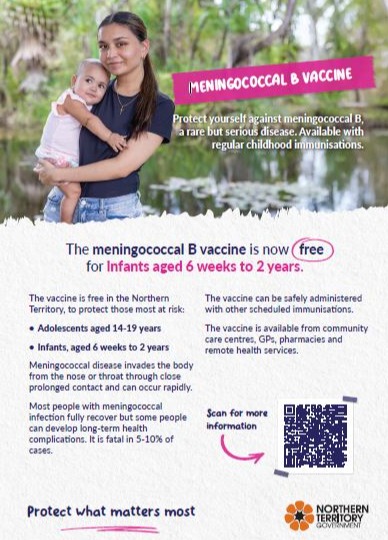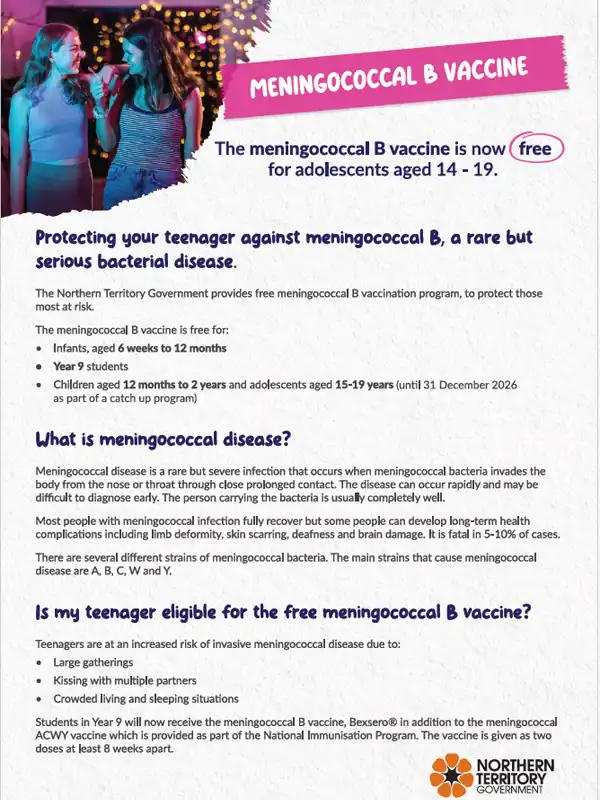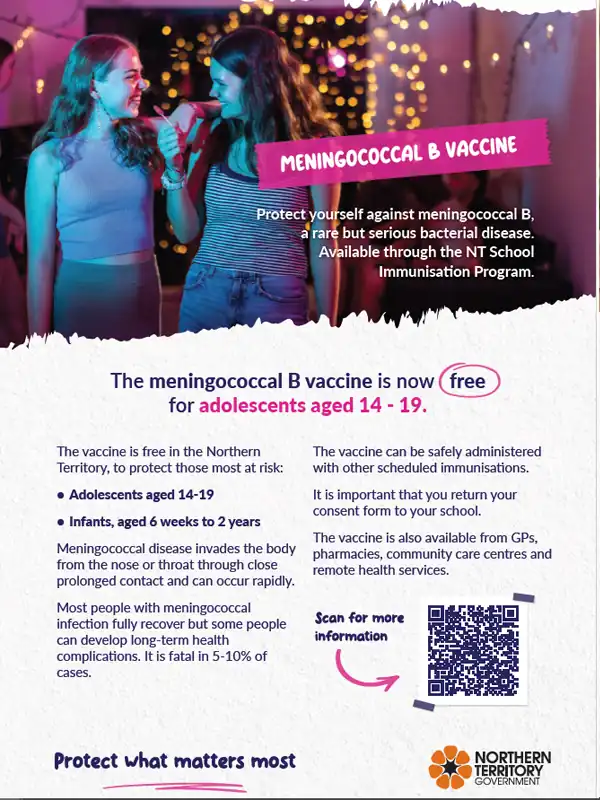Meningococcal disease
Meningococcal disease is a rare but serious bacterial disease.
About one in every 10 people carry the bacteria in the nose and throat.
Most people who 'carry' this bacteria don't get sick.
However, they are able to spread it to other people who may become very unwell very quickly if infected.
There are 5 main strains that cause meningococcal disease - A, B, C, W and Y.
Symptoms
Symptoms of the disease may include:
- fever
- headache
- confusion or drowsiness
- neck stiffness
- joint pains
- rash
- dislike of bright lights
- vomiting.
When diagnosed and treated with antibiotics quickly, most people will make a full recovery. However, in some cases, it can lead to the following:
- hearing loss
- fits
- limb amputation
- renal failure
- skin scarring.
About 8 to 10% of cases may result in death.
Prevention
Meningococcal disease can be prevented by vaccination.
Check if you're eligible for a free vaccine below.
If you're not eligible for a free vaccine, you can consult your GP for a private script.
Meningococcal B vaccination program
Meningococcal B is a rare but serious bacterial disease that can be prevented by vaccination.
Infants and young people are at an increased risk of invasive meningococcal disease.
As of January 2025, the meningococcal B vaccine is now free in the Northern Territory for:
- infants aged 6 weeks to 12 months
- year 9 students.
The meningococcal B vaccine will be free until 31 Dec 2026 as part of a 2-year catch-up program for:
- children aged 12 months to 2 years
- teenagers aged 15-19 years.
This is in addition to the meningococcal ACWY vaccine as part of the National Immunisation Program.
The vaccine is available from GPs, participating pharmacies for children over 5, community care centres, remote health clinics and through the NT School Immunisation Program.
The vaccine is free but some GPs and pharmacies may charge an attendance fee.
Students in Year 9 will receive the meningococcal B vaccine.
Students in Years 10, 11 and 12 will be provided the vaccine as part of a catch-up schedule through the School Immunisation Program until 31 December 2026. The vaccine is given as 2 doses at least 8 weeks apart.
Parents and students will be notified when the vaccine will be provided at their schools and will be asked to return a consent form PDF (406.9 KB). Teenagers can also access the vaccine from GPs, health clinics and participating pharmacies.
The meningococcal B vaccine can be safely administered with other scheduled childhood vaccines as part of the standard National Immunisation Program from 6 weeks of age.
Children under 12 months require 3 doses of the vaccine, while children over the age of 12 months require two doses. Infants can also access the vaccine from their local health clinic or GP.
To reduce the risk of fever after the vaccine, paracetamol is recommended up to 30 minutes before, or as soon as practicable after, receiving the vaccine. This is regardless of whether the child has a fever.
- first dose - 30 minutes before vaccination or as soon as possible afterwards
- second dose - 6 hours after the first dose even if there is no fever
- third dose - 6 hours after the previous dose, even if there is no fever.
If you have any concerns regarding symptoms after the vaccine seek medical advice.
The meningococcal B vaccine has also shown effectiveness in preventing gonorrhoea amongst teenagers and young adults. This is because gonorrhoea and meningococcal B are caused by similar types of bacteria.
Common side effects following meningococcal B immunisation include:
- fever
- pain
- redness, swelling or a nodule (small hard lump) at the injection site
- sleepiness
- headache and feeling unwell (more commonly reported among teenagers and young adults).
Fact sheets
Videos
Free meningococcal B vaccine for infants aged 6 weeks to 2 years.
Free meningococcal B vaccine for teenagers aged 14 to 19.
ACWY vaccine
The meningococcal ACWY vaccine is free for:
- babies at 12 months
- young people aged 14 to 19
- people of any age with certain medical conditions.
Information for health professional
To find out more, go to the NT Health website.
More information
For more information, read the meningococcal disease fact sheet PDF (580.0 KB).
You can also contact your nearest Centre for Disease Control on the NT Health website.




